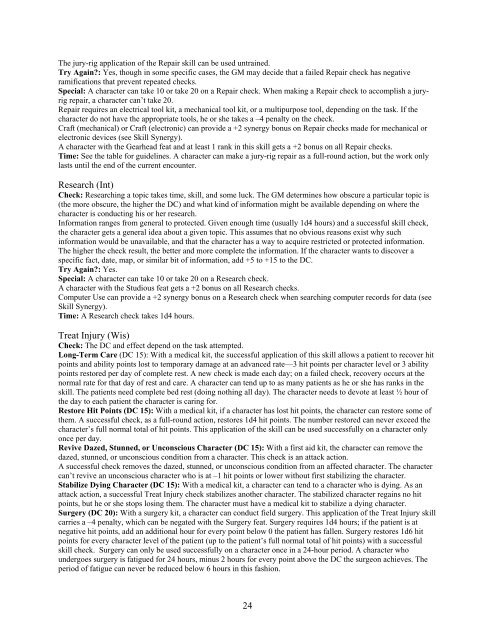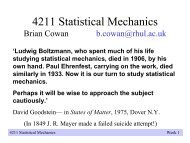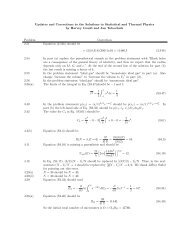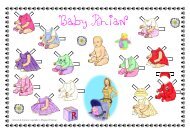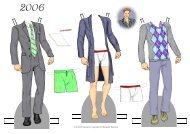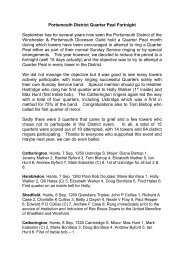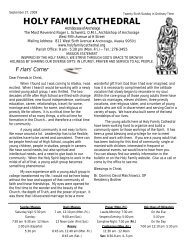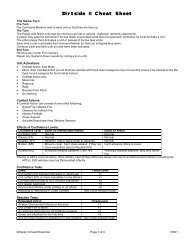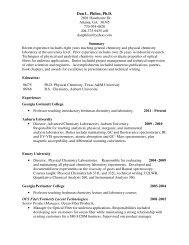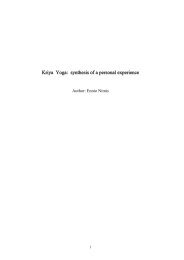D20 Superhero! Handbook
D20 Superhero! Handbook
D20 Superhero! Handbook
Create successful ePaper yourself
Turn your PDF publications into a flip-book with our unique Google optimized e-Paper software.
The jury-rig application of the Repair skill can be used untrained.<br />
Try Again?: Yes, though in some specific cases, the GM may decide that a failed Repair check has negative<br />
ramifications that prevent repeated checks.<br />
Special: A character can take 10 or take 20 on a Repair check. When making a Repair check to accomplish a juryrig<br />
repair, a character can’t take 20.<br />
Repair requires an electrical tool kit, a mechanical tool kit, or a multipurpose tool, depending on the task. If the<br />
character do not have the appropriate tools, he or she takes a –4 penalty on the check.<br />
Craft (mechanical) or Craft (electronic) can provide a +2 synergy bonus on Repair checks made for mechanical or<br />
electronic devices (see Skill Synergy).<br />
A character with the Gearhead feat and at least 1 rank in this skill gets a +2 bonus on all Repair checks.<br />
Time: See the table for guidelines. A character can make a jury-rig repair as a full-round action, but the work only<br />
lasts until the end of the current encounter.<br />
Research (Int)<br />
Check: Researching a topic takes time, skill, and some luck. The GM determines how obscure a particular topic is<br />
(the more obscure, the higher the DC) and what kind of information might be available depending on where the<br />
character is conducting his or her research.<br />
Information ranges from general to protected. Given enough time (usually 1d4 hours) and a successful skill check,<br />
the character gets a general idea about a given topic. This assumes that no obvious reasons exist why such<br />
information would be unavailable, and that the character has a way to acquire restricted or protected information.<br />
The higher the check result, the better and more complete the information. If the character wants to discover a<br />
specific fact, date, map, or similar bit of information, add +5 to +15 to the DC.<br />
Try Again?: Yes.<br />
Special: A character can take 10 or take 20 on a Research check.<br />
A character with the Studious feat gets a +2 bonus on all Research checks.<br />
Computer Use can provide a +2 synergy bonus on a Research check when searching computer records for data (see<br />
Skill Synergy).<br />
Time: A Research check takes 1d4 hours.<br />
Treat Injury (Wis)<br />
Check: The DC and effect depend on the task attempted.<br />
Long-Term Care (DC 15): With a medical kit, the successful application of this skill allows a patient to recover hit<br />
points and ability points lost to temporary damage at an advanced rate—3 hit points per character level or 3 ability<br />
points restored per day of complete rest. A new check is made each day; on a failed check, recovery occurs at the<br />
normal rate for that day of rest and care. A character can tend up to as many patients as he or she has ranks in the<br />
skill. The patients need complete bed rest (doing nothing all day). The character needs to devote at least ½ hour of<br />
the day to each patient the character is caring for.<br />
Restore Hit Points (DC 15): With a medical kit, if a character has lost hit points, the character can restore some of<br />
them. A successful check, as a full-round action, restores 1d4 hit points. The number restored can never exceed the<br />
character’s full normal total of hit points. This application of the skill can be used successfully on a character only<br />
once per day.<br />
Revive Dazed, Stunned, or Unconscious Character (DC 15): With a first aid kit, the character can remove the<br />
dazed, stunned, or unconscious condition from a character. This check is an attack action.<br />
A successful check removes the dazed, stunned, or unconscious condition from an affected character. The character<br />
can’t revive an unconscious character who is at –1 hit points or lower without first stabilizing the character.<br />
Stabilize Dying Character (DC 15): With a medical kit, a character can tend to a character who is dying. As an<br />
attack action, a successful Treat Injury check stabilizes another character. The stabilized character regains no hit<br />
points, but he or she stops losing them. The character must have a medical kit to stabilize a dying character.<br />
Surgery (DC 20): With a surgery kit, a character can conduct field surgery. This application of the Treat Injury skill<br />
carries a –4 penalty, which can be negated with the Surgery feat. Surgery requires 1d4 hours; if the patient is at<br />
negative hit points, add an additional hour for every point below 0 the patient has fallen. Surgery restores 1d6 hit<br />
points for every character level of the patient (up to the patient’s full normal total of hit points) with a successful<br />
skill check. Surgery can only be used successfully on a character once in a 24-hour period. A character who<br />
undergoes surgery is fatigued for 24 hours, minus 2 hours for every point above the DC the surgeon achieves. The<br />
period of fatigue can never be reduced below 6 hours in this fashion.<br />
24


